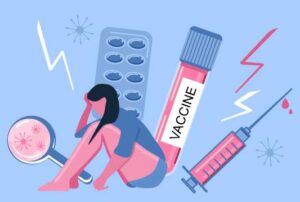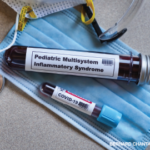 As more people get vaccinated for COVID-19, there’s hope that the long days of a pandemic, which has claimed more than 2.5 million lives globally and 500,000 in the U.S., will soon draw to a close and allow daily life to return to normal. However, for some people, this recovery may take longer, because the lingering symptoms of COVID-19 are making it difficult for them to return to the hale state of health they enjoyed prior to contracting SARS-CoV-2.
As more people get vaccinated for COVID-19, there’s hope that the long days of a pandemic, which has claimed more than 2.5 million lives globally and 500,000 in the U.S., will soon draw to a close and allow daily life to return to normal. However, for some people, this recovery may take longer, because the lingering symptoms of COVID-19 are making it difficult for them to return to the hale state of health they enjoyed prior to contracting SARS-CoV-2.
The nomenclature for these patients is evolving. Long-haulers is popular, as is people with long COVID. Whichever term is used, it’s now widely recognized that many people are emerging from SARS-CoV-2 infection with persistent symptoms, and these cases are being documented in a growing number of cohort studies.
Research Says …
In China, a large cohort study found 76% of patients hospitalized with COVID-19 in Wuhan between January and May 2020 had at least one ongoing symptom six months after acute infection.1
A 2021 cohort study from Ireland found 62% of patients—both those hospitalized for acute COVID-19 infection and those with milder disease—reported they didn’t feel back to full health at a median of 75 days after diagnosis. Forty-seven percent of these patients met the case definition for fatigue, independent of initial disease severity. Of the 48% of patients in the Irish study who required hospitalization for COVID-19, 4% had persistently abnormal chest X-rays.2
Other cohort studies are documenting prolonged symptoms in people with initial mild COVID-19.3,4
To better understand these numbers, a meta-analysis pooled data from multiple studies and found 80% of patients infected with SARS-CoV-2 developed one or more long-term symptoms.5 The analysis of 47,910 patients with a confirmed diagnosis of COVID-19 from 15 studies assessed symptoms, signs or laboratory parameters two weeks or more after viral infection (range: 14–100 days). The analysis included patients with all degrees of COVID-19 severity. Table 1 describes the most common symptoms reported.
Musculoskeletal symptoms are also emerging as a common persistent issue, as reported in a systematic review documenting an array of rheumatic and neuromuscular complications supported by multi-modal imaging. The review describes the range of persistent effects of COVID-19 on muscles, nerves, joints, soft tissue and bone found on imaging. The symptoms reported by patients included arm and leg weakness, pain, numbness, joint pain and swelling with restricted motion, and severe fatigue.6

Dr. Deshmukh
The study’s senior author, Swati Deshmukh, MD, assistant professor, Department of Radiology (Musculoskeletal), Northwestern University, Chicago, emphasizes the clinical implication of these findings and the increasing number of people experiencing and now living with persistent post-COVID-19 symptoms.
“Early in the pandemic, there was a focus on survival vs. death,” she says. “One year later, we need to come to terms with the fact that there are many people who have long-term medical conditions because of COVID-19. The healthcare system will need to address this new patient population, the so-called long-haulers who may require expertise from doctors of different specialties.”
To date, no one knows why some people develop persistent symptoms. But the pool of patients is growing, with a new study reporting that even patients who do not feel sick after testing positive for SARS-CoV-2 are developing long-term symptoms.7



